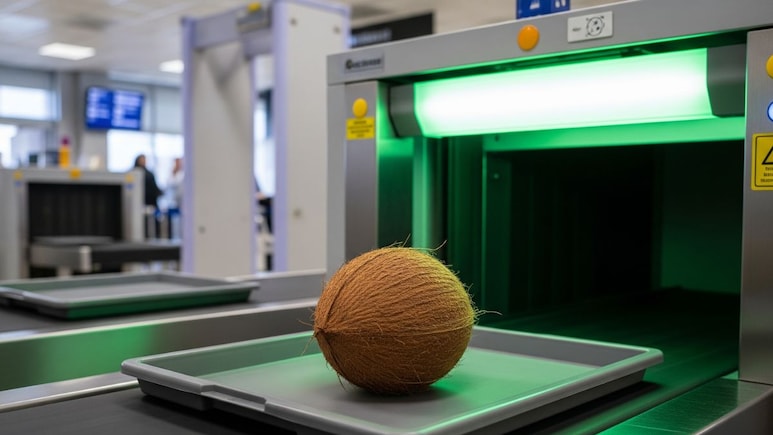
Flying comes with its own set of rules, and one of the trickiest parts, if you are travelling by air for the first time, is figuring out what you can and cannot pack in your bags. Most of us are aware of the obvious restrictions like liquids above 100 ml, sharp objects, or aerosols, but some banned items can be quite surprising. Take the coconut, for example. Many travellers, especially those carrying temple prasad, assume it is a harmless fruit. But coconuts are strictly off-limits on planes, and for good reason. Here is everything you need to know before you pack one for your next journey.
Also Read: 7 Stunning Islands Indians Can Visit Without A Visa Hassle
Why Are Coconuts Not Allowed On Flights?
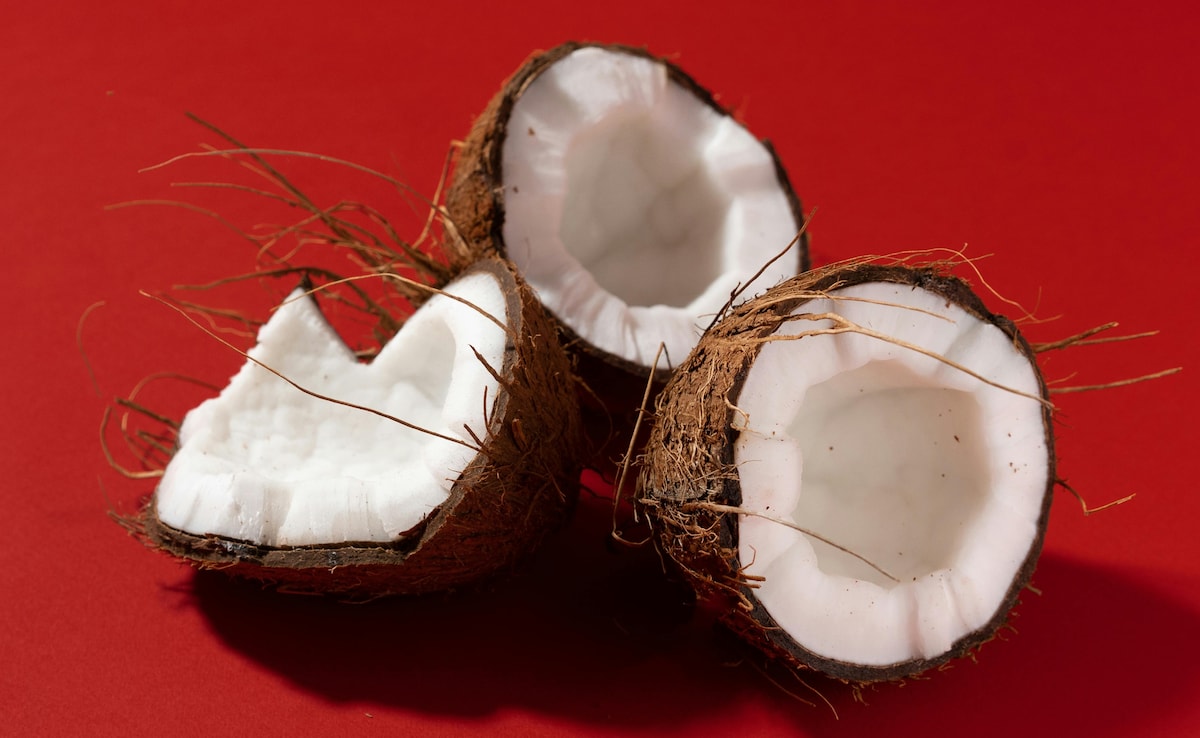
Photo: Pexels
While responding to a social media post on X, IndiGo Airlines explained, “Dry coconut is a highly flammable object; hence, carrying it in check-in luggage is not permitted." They further added that dry coconut is not permitted in either hand baggage or checked baggage. The reason is simple: dry coconut contains a high amount of oil, which is used to produce coconut oil, and this is highly flammable. It can cause a fire if it comes in contact with heat inside the aircraft.
Watch the full post below:
Hi Supriya, dry coconut is a highly flammable object hence, carrying the same in check-in luggage is not permitted.
— IndiGo (@IndiGo6E) May 13, 2017
Are Coconuts Allowed In Checked-In Baggage?
The rules are strict when it comes to coconuts in check-in luggage. Whole coconuts or dried copra are not allowed, as they pose a fire risk. However, airlines like SpiceJet mention that coconut is only permitted if cut into small pieces and placed in checked baggage. Even then, it must be properly packed. The distinction is clear: while raw coconut pieces may pass in check-in baggage, whole or dried coconuts are not accepted at all.
Can You Carry A Raw Coconut On A Flight?
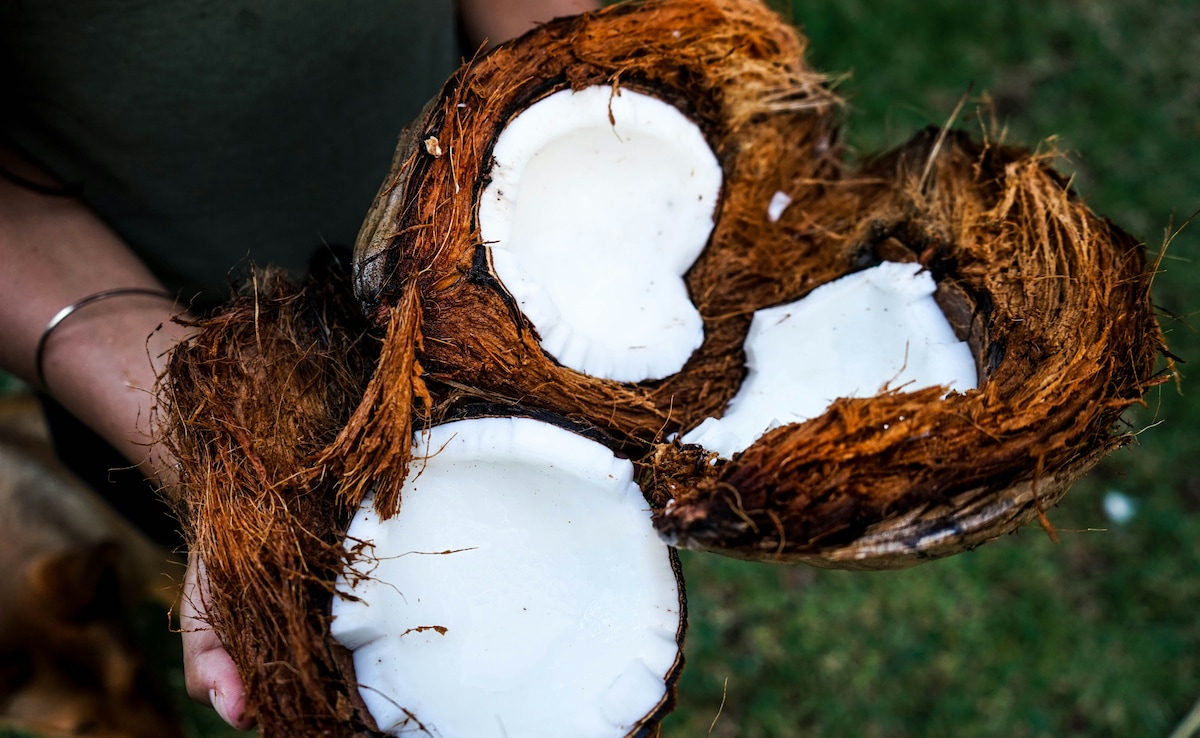
Photo: Unsplash
Although it may seem harmless to carry one, airlines advise against it. SpiceJet Airlines notes on their website, “Coconut is only permitted for carriage in checked-in baggage if cut into small pieces.” Whole coconuts or dried copra remain off-limits for both cabin and check-in luggage. This makes it clear that the safest choice is to avoid packing coconuts altogether when flying.
Also Read: 7 Stunning Islands Indians Can Visit Without A Visa Hassle
What Happens If You Carry A Coconut On A Plane?
If you attempt to carry a coconut, airport security will most likely confiscate it during baggage checks. In some cases, international airports may issue warnings or fines depending on customs regulations, as flammable items can fall under dangerous goods. At the very least, the coconut will be taken away, which means losing it after the security screening. To avoid inconvenience or loss, it is better not to pack one in the first place.
Coconuts And International Flight Regulations
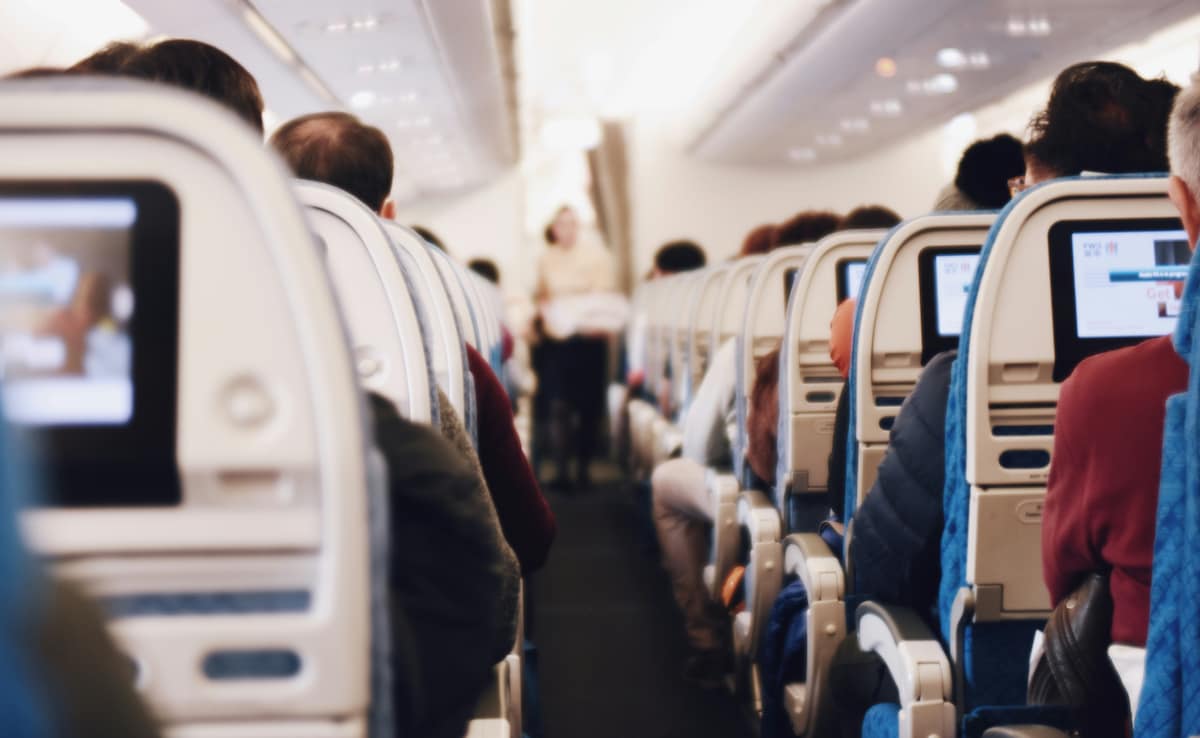
Photo: Pexels
The restrictions extend beyond Indian airlines and apply globally as well. As reported by The Independent, the International Air Transport Association (IATA) lists coconut meat under its Dangerous Goods Register. Dried coconut is categorised as a “flammable solid” prone to spontaneous combustion. It may also release flammable gases when in contact with water, and even copra dust can ignite with a spark. The decomposition of coconut fat can further add to the risk of fire. That said, packaged coconut products like sealed coconut milk cartons or coconut powder are usually permitted on flights, provided they meet liquid and packaging regulations.
Travellers often wonder if coconut rules differ between countries. While airlines in the US, UK, or Europe follow IATA guidelines, each carrier may have additional restrictions. This means that even if an airline abroad allows certain packaged coconut products, it is always safer to check with the airline before packing them.
Which Food Items Are Allowed In Cabin Baggage?
1. Honey (Up to 100 ml, sealed properly)
Small jars or bottles of honey are allowed if they do not cross the liquid limit. Ensure it is tightly packed and placed in a clear bag so that it passes through security checks smoothly.
2. Water or Aerated Drinks (Up to 100 ml)
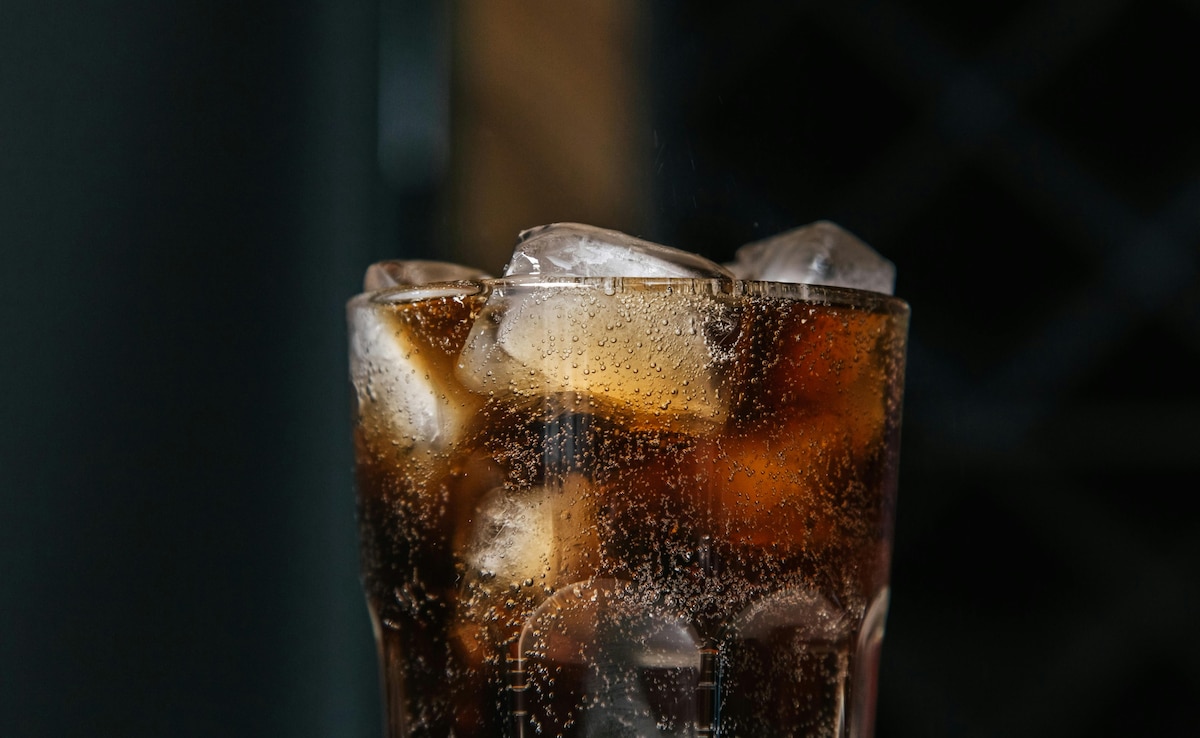
Photo: Pexels
You can carry sealed bottles of water or cold drinks under the specified limit. Anything above this will be detained, so it is easier to purchase beverages after security clearance.
3. Biryani and Solid Meals
Cooked meals like biryani are permitted as long as they do not contain excess gravy or liquid. Use leak-proof containers to pack them neatly and prevent any mess inside the cabin.
4. Dry Cake and Sweets
Bakery items like sponge cakes, mithai, or dry sweets are allowed. Pack them in boxes or airtight containers so that they remain intact during the journey.
5. Dry Fruits, Fruits, and Vegetables
Items like nuts, apples, or cucumbers are considered safe and convenient for in-flight snacking. These are easy to carry and pass through security without trouble.
Which Foods Are Not Allowed In Cabin Baggage?
1. Fish and Meat
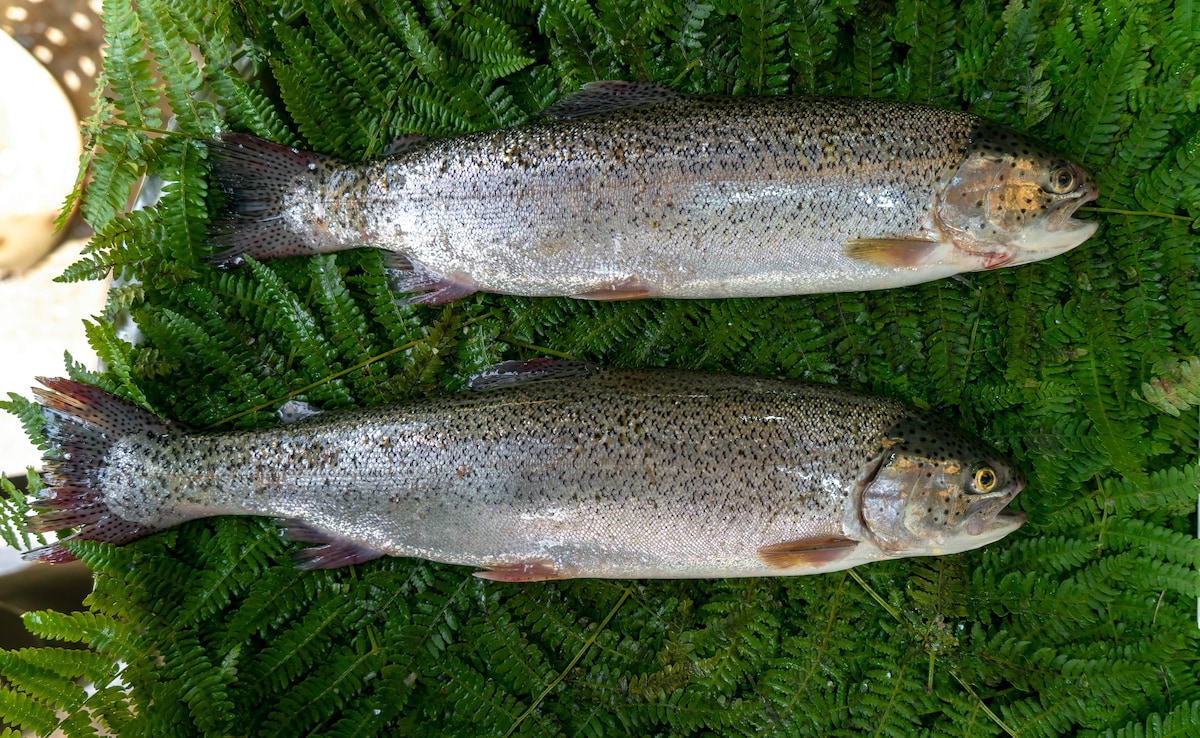
Photo: Unsplash
Raw fish or meat are not permitted as they spoil quickly and can create hygiene issues. They also cause strong odours that may disturb other passengers.
2. Coconut (Whole or Dry)
Whether tender, fresh, or dried, coconuts are banned due to their oil content and flammability. Carrying them poses a serious fire risk, making them prohibited in both cabin and checked baggage.
3. Pickles (Like Chilli Pickle)
Pickles have liquid content that can spill or leak, and their strong smell is unsuitable for cabin travel. Most airlines categorise them as restricted items for hand baggage.
4. Raw Rice or Pulses
Although they may seem harmless, raw grains are restricted. They can interfere with scanning equipment and are flagged as suspicious items during security checks.
5. Powdered or Whole Spices
Any form of spice, whether powder or whole, is not allowed. They may be mistaken for hazardous powders during X-ray scans and often trigger alarms.
Which Foods Are Allowed In Checked-In Baggage?
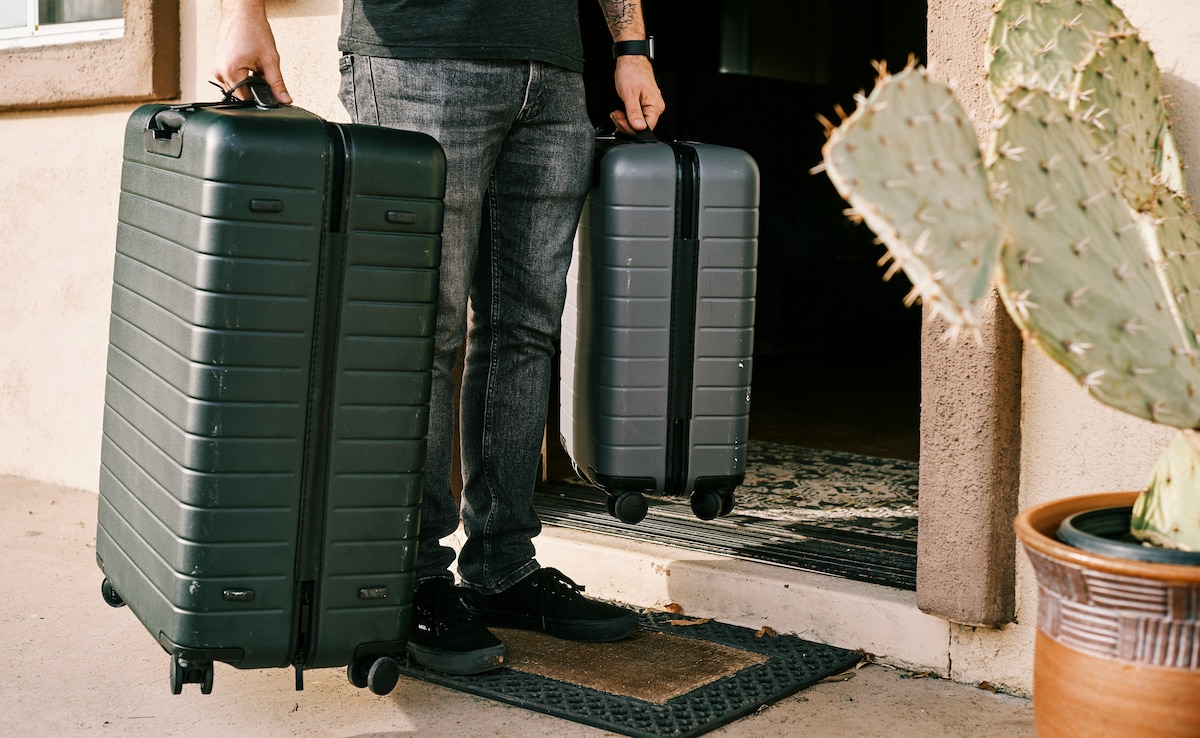
Photo: Unsplash
While rules for cabin baggage are strict, passengers often have more flexibility with checked-in luggage. Items such as sealed jars of pickles, vacuum-packed meat, or cooking oils under specific limits may be allowed in check-in bags. However, they must be tightly sealed to prevent spillage. Fresh fruits and vegetables may also be carried depending on the airline, but for international flights, customs restrictions on agricultural products often apply. Always check both airline and destination country rules before packing.
Also Read: 7 Things You Should Never Say At The Immigration And Why
Tips On How To Pack Food For Flights
1. Pack Light and Compact
Carry food in small, travel-friendly containers. Bulky packaging wastes space and can attract unnecessary checks.
2. Use Leak-Proof Boxes
Liquids and semi-liquids should always be sealed tightly. Even a minor leak can spoil your bag and create a mess in the overhead bin.
3. Label Homemade Food
If carrying cooked meals, label the container. This makes it easier to explain contents to security staff if asked.
4. Avoid Strong Odours
Foods with overpowering smells, like fried fish or spicy gravies, may be restricted or unpleasant for fellow passengers. Opt for mild snacks instead.
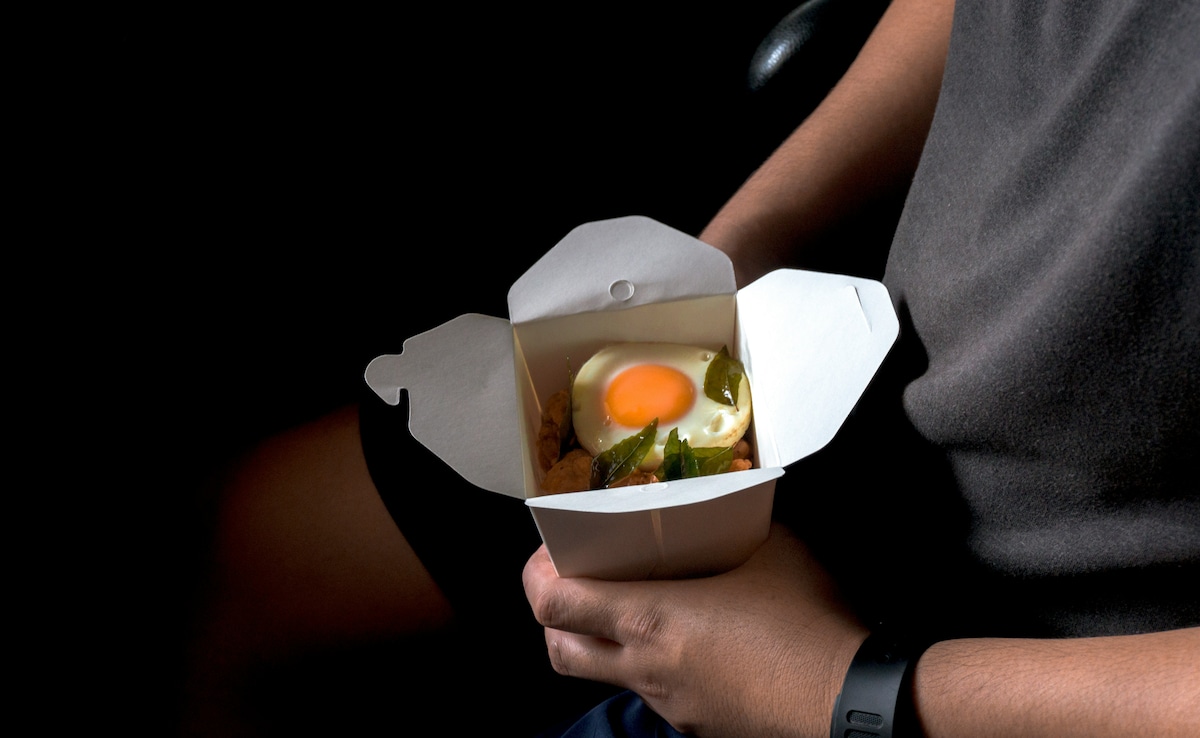
Photo: Unsplash
5. Buy After Security
When in doubt, buy food or drinks after security clearance. This avoids the risk of your items being confiscated.
Also Read: Howrah Bridge: 6 Fascinating Facts About Kolkata's Iconic Steel Giant
How To Avoid Food Getting Confiscated At Airports
The simplest way to avoid losing food at security is to check airline rules in advance. Look up the official airline website or contact customer service to confirm. For international travel, always review customs rules, since many countries prohibit raw produce, seeds, or meat products. Packing food in transparent containers and avoiding restricted items like coconuts or spices will ensure smoother checks. If unsure, always pack minimally and rely on buying food after security or at your destination.
So, the next time you are packing food for a trip, remember that coconuts are not permitted, and several other food items may also be restricted. Sticking to airline guidelines will help you travel smoothly without any last-minute surprises at security.
Track Latest News Live on NDTV.com and get news updates from India and around the world

